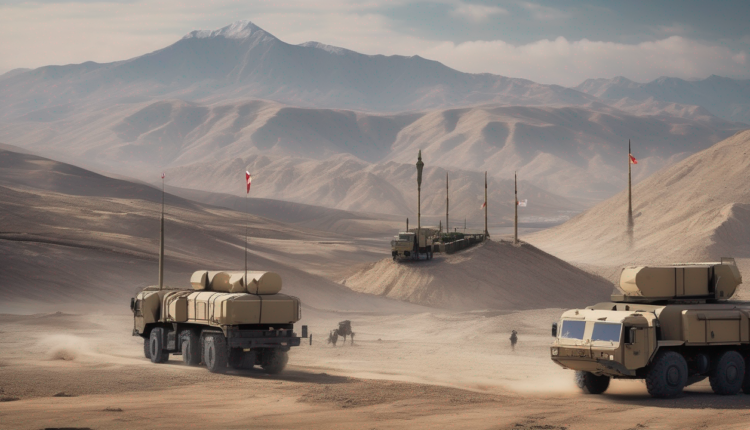©2021 Reporters Post24. All Rights Reserved.
Türkiye may soon station its Russian-made S-400 air defense systems at the Iraqi frontier, a move reported by the Türkiye newspaper Hurriyet on April 10, 2024, and which could signify the inaugural operational use of these assets since their 2019 acquisition. This anticipated deployment is seen as a countermeasure to recent regional threats, notably Iranian missile strikes, and could amplify already tense relations with NATO allies.
The S-400 Triumfmissile system, known as SA-21 Growler in NATO parlance, is a long-range air defense solution engineered and manufactured by Almaz-Antey. Equipped to counter diverse targets such as ECM aircraft, reconnaissance, tactical, and theater ballistic missiles, as well as cruise missiles like the Tomahawk, the S-400 is capable of engaging targets up to 400 km away and at altitudes of up to 30 km. It also can detect stealth aircraft and simultaneously engage up to 36 targets across varying altitudes and distances. Since entering service with the Russian armed forces in 2007, the S-400 has anchored Russia’s surface-to-air missile capability, with operational deployments in Syria and sales to nations including Turkey, China, India, and Algeria.

The system incorporates multiple radars for meticulous surveillance and command, featuring the 92N2E Grave Stone firing radar and the 91N6E Big Bird acquisition radar. Command and control vehicles like the 55K6E orchestrate air surveillance and threat prioritization, embedding the system within a stratified air defense network. The S-400’s modularity facilitates the use of an assortment of missile types and radars, thereby augmenting its ability to address varied threat scenarios. The incorporation of such advanced technologies bolsters its standing in the international arena despite the geopolitical frictions it may incite, particularly with NATO.
Ankara’s procurement of these systems in 2019 provoked Western indignation due to the S-400’s incompatibility with NATO systems and concerns over the security of Western technologies. Despite persistent U.S. warnings against its activation and subsequent sanctions, the S-400 has yet to be deployed operationally. According to Türkiye, the current decision to deploy is intended as a defensive measure against drones and potential significant ballistic threats from Iran, which has recently executed an unprecedented assault on Israel.
The S-400 purchase cost Türkiye approximately 2.5 billion dollars, but the indirect costs have been considerably higher due to the country’s exclusion from the F-35 supply program, leading to estimated losses exceeding 9 billion dollars. The United States has barred Ankara from acquiring F-35s, suggesting that it would allow Russian technicians access to data potentially compromising the aircraft’s stealth capabilities.
Analysts are divided on the veracity and motivations behind these reports. Ali Bakir, a Turkish expert at Qatar University, believes it could be a trial balloon, an operational necessity, or potentially false news. Yet, if true, the deployment would serve as a bulwark against ballistic missile threats, notably from Iran, amid increasing regional tension.
Suleyman Ozeren, a lecturer at American University and senior fellow at the Orion Policy Institute, views the potential deployment as serving several strategic objectives for Ankara. It may aim to quell domestic criticism, affirm military cooperation with Moscow, and convey a robust message to the West regarding Türkiye’s strategic stance between Russia and NATO.
In January, then-acting Deputy Secretary of State Victoria Nuland hinted at the possibility of reinstating Türkiye into the F-35 program if the S-400 issue were resolved. Nevertheless, the continued presence of the S-400 in Turkey remains a significant point of contention with the United States.
Decisions made by Erdogan’s AKP regarding the S-400 acquisition have led Ankara into a precarious situation which, according to Ozeren, necessitates a realignment towards a stronger alliance with NATO, despite initial goals of distancing from the alliance.
This development highlights the complex challenges Türkiye faces in maintaining its relations with both NATO and strategic partners such as Russia.


